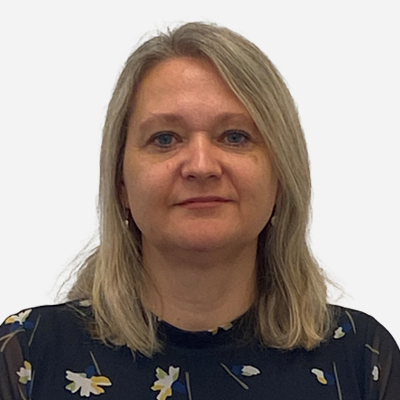Speaker Bio & Abstract

Director General's Office of State Geodetic Administration
BiographySanja Zekusic, MSc in geodesy is a Senior Consultant in the State Geodetic Administration of the Republic of Croatia.
For the last 20 years she has been responsible for preparation and implementation of projects funded by the EU and other donors, including the tasks related to international cooperation in the field of land administration. Presently, she is a Member State Project Leader of the twining project "Improving Spatial Data Services in the Republic of Moldova following EU standards" .
AbstractDigital transformation, spatial data, NSDI, twinning project. Development of National Spatial Data Infrastructure (NSDI) in the Republic of Moldova, achieved a significant progress in the last 15 years. Ongoing European Union (EU) funded Twinning Project, "Improving Spatial Data Services in the Republic of Moldova following EU standards", aims to contribute to respective NSDI development by focusing on enhancing e-Government through improved spatial data sharing and cooperation among authorities in line with EU standards and best international practices. Twinning is an institution-building tool funded by the EU, which is based on partnership cooperation among public administrations.
Main beneficiary of the project is Agency for Land Relations and Cadastre (ALRC) as the coordinating authority of Moldovan NSDI while consortium of the partners from three EU Member States provides twinning support to the ALRC:
Croatian State Geodetic Administration, Croatian Central Finance and Contracting Agency and Faculty of Geodesy, Zagreb University,
Polish Head Office of Geodesy and Cartography and
The Netherlands Enterprise Agency and Dutch Kadastre.
The support to be provided is based on the EU INSPIRE Directive 2007/2/EC and is developed to address various challenges the ALRC and many other stakeholders in the Republic of Moldova are facing in NSDI development. NSDI can be defined as a set of technologies, measures, standards, implementing rules, services, human capacity and other factors that enable effective integration, management and maintenance of spatial data sharing in order to meet national needs as well as at European level.
The project is focused on the implementation of activities in the following five components:
Sustainable NSDI Governance established;
NSDI Cost Recovery Model developed;
Use of the existing data within the NSDI enabled;
Capacity Building and Awareness;
Existing legislation on NSDI and proposed improvements reviewed.
The project results aim in making spatial data more accessible and by default lead to avoiding the duplication of costs and efforts as well as contribute to the improvement of the state-level decision-making processes. Among the most important ones, the following results achieved since the beginning of the project (1st September 2020) can be highlighted:
review and preparation of amendments to the NSDI Law and different sub-ordinances,
support in development of the new NSDI Geoportal,
development of strategic documents, such as a five-year State Programme and corresponding Action Plan,
development of 6 guidelines which should increase the quality of spatial data and facilitate its sharing among NSDI stakeholders: Guidelines on analogue to digital conversion; on geo-referencing; for data specifications; on data modelling; for data harmonisation and for creation and maintenance of metadata, all of which were presented to many Moldovan public institutions,
capacity building through organisation and development of an extensive 35-hour online training course for over 100 participants, GIS specialists from central public authorities and Chisinau City Hall,
the awareness raising on the importance of the Moldovan NSDI,
NSDI cost assessment that will serve as basis for business model development;
review of input of ALRC staff to educational programs at Universities offering courses in the field of Project main topic and recommendation for improvement.
Due to the situation with covid-19 pandemic all activities are carried out on-line. Despite of that, work on the twinning project is very effective and cooperation with ALRC and Moldovan NSDI stakeholders intensive. This project is a good example of how partners can adjust to remote way of work and in this way still fulfil the set objectives. This was possible thanks to strong dedication of all sides, continued coordination and monitoring as well as usage of available communication technology.